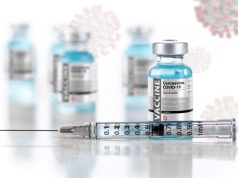Indefinite anticoagulation prevented recurrent VTE events, but induced major bleeding events
By Elana Gotkine HealthDay Reporter
THURSDAY, June 29, 2023 (HealthDay News) — For patients with a first unprovoked venous thromboembolism (VTE), indefinite anticoagulation prevents some recurrent VTE events but induces additional major bleeding events, according to a study published online June 27 in the Annals of Internal Medicine.
Faizan Khan, Ph.D., from the University of Calgary in Canada, and colleagues estimated the benefit-harm tradeoffs of indefinite anticoagulation in patients with a first unprovoked VTE who completed three to six months of initial anticoagulant treatment.
The researchers found that in a hypothetical cohort of 1,000 patients aged 55 years, indefinite anticoagulation prevented 368 recurrent VTE events, including 14 fatal pulmonary emboli in the base-case analysis, but induced 114 major bleeding events, including 30 intracranial hemorrhages and 11 deaths from bleeding. The cost of indefinite anticoagulation was $16,014 (in Canadian dollars) more per person, and did not increase quality-adjusted life years. In the sensitivity analysis, during extended anticoagulation, the model results were most sensitive to the case-fatality rate of major bleeding and the annual risk for major bleeding.
“Continuing versus discontinuing anticoagulation indefinitely in all (that is, unselected) patients with a first unprovoked VTE has little chance of improving life expectancy but might provide a mortality benefit in certain subgroups,” the authors write.
Abstract/Full Text (subscription or payment may be required)
Copyright © 2023 HealthDay. All rights reserved.








